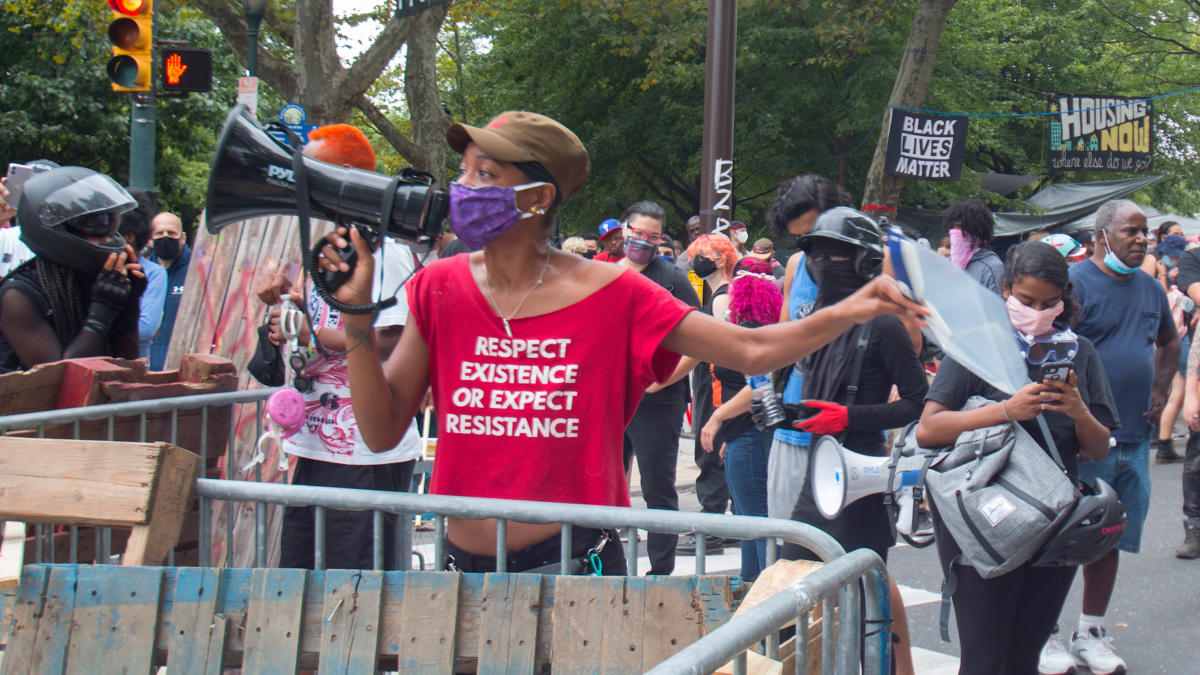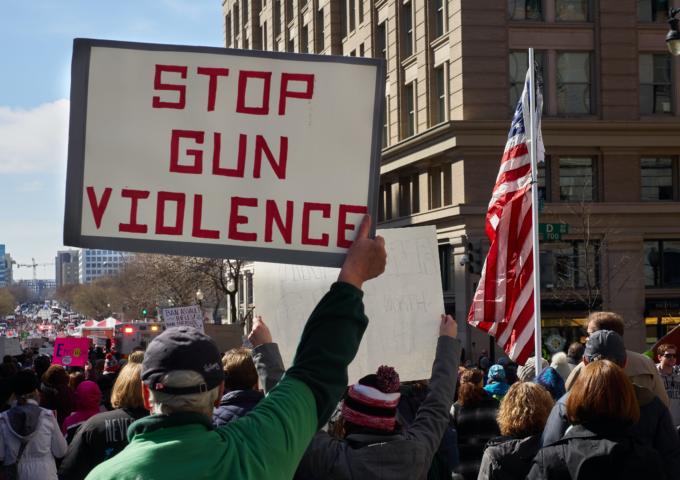Know how something doesn’t really affect you until you’re living it?
I’d be lying if I said that’s been my sentiment on the homeless encampment that has taken the Benjamin Franklin Parkway under siege for the past few months. To me, knowing the city’s umm, reticence, in securing safe housing for its homeless population, I viewed this stand as noble in an effort to re-open the dialogue of Philadelphia’s plan for ALL of its residents.
This was my sentiment in June. However it’s September and here we are encampment dwellers have set up a barricade and are standing off with police and officials, refusing to move. As I write this I’m reading our Aug. 8 cover story from Jason N. Peters who went inside the Parkway encampment and spoke with residents to get their perspective.
I went by the encampment early Tuesday evening on the eve of the removal and realized that the occupation isn’t just the stretch on along the corner of 21st and Benjamin Franklin Parkway towards the Philadelphia Museum of Art, but has extended to the public lawns of the Rodin and the Barnes Museum.
I look at all of this and I see a failure of the local government, one that is in ownership of vacant lots and buildings all throughout the city to fail to come to a resolution with those who are desperately looking for one. But I also see this as a win for Fairmount residents who have complained for months about this occupation becoming a public health issue one Philadelphia can’t afford during a pandemic.
However, on Tuesday I also received what you’re about to read from city councilmembers Kendra Brooks and Jamie Gauthier in response to failed talks and realize that this is not reticence, but stubbornness on both sides to budge. Resolutions can’t arrive if either party is willing to make concessions and it sounds like that’s where we are. I, for one, hope that the removal of those in the encampment goes smoothly – although watching Antifa assist in the barricade process brings some pause.
After reading the following – which has been edited for brevity – I’m really interested in what you think about this situation. Whether it’s good, bad or indifferent, drop us a line at voices@philadelphiaweekly.com. You can read the full letter from Brooks and Gauthier on our website, philadelphiaweekly.com.
Stay safe, Philadelphia.
A letter from City Councilmembers Kendra Brooks and Jamie Gauthier:
In recent weeks, we have worked to keep encampment organizers and the City at the negotiating table in order to achieve a peaceful resolution. While conversations along the way have been productive, it does not appear that a comprehensive agreement will ultimately be reached between the two parties.
We appreciate the City’s willingness to continue discussions in good faith, and we acknowledge that the City put a great deal of effort into providing encampment residents with housing support. We are also grateful to the encampment organizers for advocating for housing justice while facing pressure from a massive bureaucratic system. The fact that an agreement remains unattainable is a reflection of just how difficult it is to secure safe, permanent housing for all Philadelphians, but it still does not justify clearing the encampments during a global pandemic.
City officials plan to execute the forced removal of all encampment residents and their property. We remain firm in our conviction that clearing the encampments harms our most vulnerable community members and damages the relationships that we have worked so hard to build.
In the interest of keeping lines of communication open around the ways Philadelphia can become a more affordable, livable, and equitable city, we’d like to provide some detail regarding the negotiations. In highlighting the structural barriers that got in the way, our hope is that organizers, City leaders, and unhoused community members can commit to addressing Philadelphia’s housing crisis through tangible policy and reform.
First and foremost is the issue of how unhoused people can access services. The options for entering the City’s system are all very regulated, requiring participants to take a very specific path – including temporary shelter – if they wish to ultimately secure long-term housing. The problem is that many people experiencing homelessness have had negative experiences in the shelter system that keep them from returning. With such a narrow, all-or-nothing path to long-term housing, many unhoused people get lost in the shuffle.
The funding structure for federal housing dollars creates additional rigidity. This money can only be used in very specific ways, which doesn’t provide the City with the flexibility it needs to support new initiatives. Furthermore, the relationship between the City of Philadelphia and PHA adds another layer of complexity.
The City and PHA are separate entities that do not have full coordination on affordable housing goals. PHA not only reports to its own board, but must have federal approval for many of its housing decisions. This is why organizers’ demands for a coordinated response went unanswered. Any comprehensive response to homelessness will require the City and PHA to work hand-in-hand.
The biggest ask that organizers and protesters had was the disposition of vacant properties, and to see them transferred to a community land trust or similar entity. But the City and PHA both have convoluted processes of disposing of vacant land and property that made this impossible. These systems are partial to organizations that have gone through the property disposition process before, and that have demonstrated a certain level of resources and capacity. In our view, both the City and PHA should make it easier for smaller and less-resourced organizations to have these opportunities as well.
While organizers’ demands were not fully met, these conversations nonetheless led to some significant commitments on the part of the City in addressing the affordable housing crisis. Initiatives such as creating a Community Land Trust, spearheading a tiny house development for low-income residents, and expanding options for the City’s Rapid Rehousing Program were direct responses to the work of the organizers and the needs of the encampment residents. We plan to hold the City to these commitments and collaborate with encampment organizers to ensure these initiatives reach those most in need.
At the end of the day, we know that many of these explanations are going to sound like poor excuses. And frankly, in some respects, they are. Every Philadelphian deserves to have a roof over their head, and dismantling the encampment doesn’t change that fact. We are so grateful to the encampment’s organizers and residents for shining a bright light on this critical issue.
And while we have a long way to go towards achieving housing justice here in Philadelphia, we are committed to the fight.Finally, we stand firm in our shared belief that evicting the residents of the encampments is an inhumane solution to the circumstances that forced these communities into existence. The CDC has issued guidance that recommends keeping encampments intact during the pandemic because of the grave public health concerns that still exist. We urge the City to move forward in their dealings with the encampment in a way that is humane and nonaggressive.





